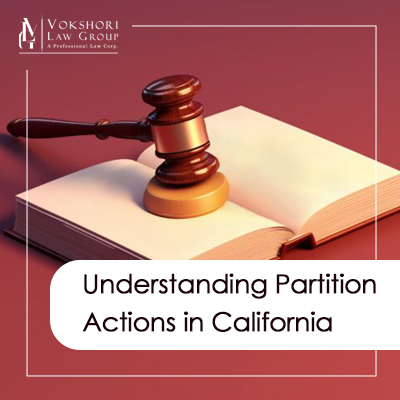
In California, partition actions are a common legal remedy for co-owners who want to end their shared ownership of a property. This process can lead to either the sale of the property and division of the proceeds, or the physical division of the property into separate parcels.
This article will guide you through what a partition action entails, especially focusing on how co-owners can manage improvements and repairs to the property. We’ll delve into the rights and responsibilities of co-tenants, how to claim reimbursement for property enhancements, and the intricacies of handling these situations in court.
The Partition Action
In California, a partition action is a civil procedure used by a co-owner to end joint ownership of a property. This can result in either the sale of the property and division of the proceeds among the owners, or the physical division of the property itself. Central to this process is an accounting of all expenditures that enhance the property’s value and exceed each co-owner’s share of the costs.
Under California law, each co-tenant has an equal right to possess the property unless there is an agreement stating otherwise.
Claims by Co-Owners
The goal of a partition action is to ensure each co-owner is fairly compensated for their share of the property. This compensation is not limited to the property’s value; it also includes reimbursement for improvements and repairs, mortgage payments, liability insurance premiums, and property taxes. The court aims to balance the contributions and benefits received by each co-owner to achieve an equitable outcome.
A Claim for Profits and Rents
Equitable law ensures that no owner is excluded from using the property. If an owner is excluded, the responsible parties could be found guilty of “ouster.” Based on this principle, the California legislature has established five rules to account for rents and profits:
- The ousted owner is entitled to recover the value of the property’s use during their exclusion. This can be done by charging the remaining owners a “rent” for the benefit of the excluded owner.
- If one owner collects rent from a third-party tenant, the other owners are entitled to a full accounting of all collected rents.
- A court will uphold any agreement between owners where one agrees to pay the others for using the property.
- Absent a third-party rental agreement or an ouster, no owner is liable to the other owners for “rent” when using the property.
- If a co-tenant exclusively possesses the property and seeks reimbursement for repairs and improvements, the fair market rental value can reduce the reimbursement amount. This applies even if there is a rental agreement between the owners or an ouster.
A Claim for Improvements and Repairs
A co-tenant can be reimbursed for any expenditure over their share of the cost, including mortgage payments, liability insurance premiums, and property taxes. For example, if two unmarried owners co-own a property and one pays 100% of the monthly mortgage payments, the other owner owes 50% of the total payments made.
If a co-tenant, in good faith, makes improvements that enhance the property’s value, they are entitled to reimbursement, even if the other co-owners were unaware or did not consent. Prior knowledge and consent are not required for full reimbursement. This principle is supported by case law, such as Mercola v. Chester (1950) 97 Cal. App. 2d 140, 217, which states that improvements made in good faith that enhance the property’s value should be reimbursed.
Recovering for Time and Labor:
An owner cannot claim the cost of their own time and labor, as highlighted in Swartzbaugh v. Sampson (1936) 11 Cal. App. 2d 451, 455, which ruled that co-owners cannot claim reimbursement for their own labor. Financial claims are limited to out-of-pocket expenses for materials and third-party contractor labor. Sweat equity, such as managing the property or making repairs personally, is not recoverable.
Have Questions About The Partition Act in California? Contact an Experienced Real Estate Attorney Today
At Vokshori Law Group, our experienced real estate litigation lawyers are well-versed in the latest partition laws and will expertly guide you through the process. We are dedicated to your success and well-being, using a comprehensive approach to achieve your goals.
For more information or to schedule a consultation, please contact Vokshori Law Group at (855) 855-2608 or visit www.VokLaw.com to learn more.






